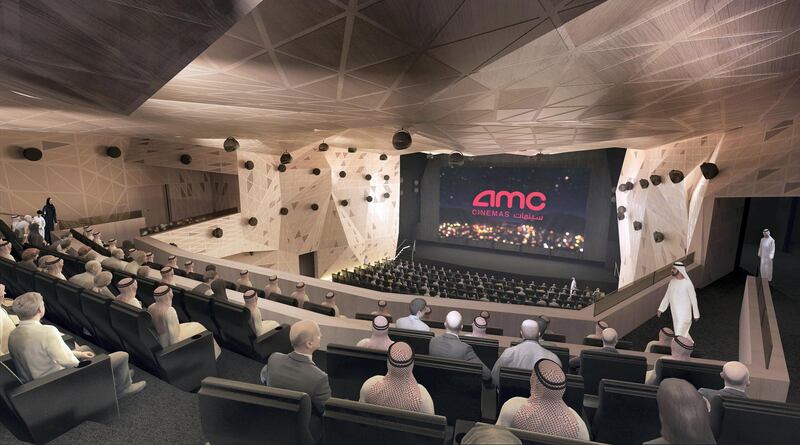They have long been among the most cited criticisms of Saudi Arabia's "ultraconservative" culture: women being barred from driving and the ban on cinemas.
Those criticisms will soon be silenced, starting with the opening the kingdom's first cinema in 35 years in Riyadh on April 18.
Licensed women drivers will take to the roads two months months later, also as part of the reforms being implemented by Crown Prince Mohammed bin Salman since last year to attract investment to the kingdom and end its dependence on oil revenues.
Although both changes seem equally momentous, the commercial screening of films will not have as much economic impact as the boost to the workforce provided by self-driving women, nor is it as liberalising as outside viewers might perceive it to be.
In a world of Netflix, satellite TV and YouTube, the opening of cinemas in the Saudi Arabia is nothing more than an entertainment novelty, akin to the planned opening of a Six Flags park in 2022. Aside from having one of the highest levels of social media engagement among the youth, Saudi Arabia has the highest rate of online television viewership in the region, with a quarter of the population saying they use the medium.
But for many Saudis who have not travelled outside the country, April 18 will bring their first opportunity to view rolling credits on the big screen. Going to the cinema will join public concerts, of which 5,000 are planned over the next year, as entertainment options citizens will be allowed to enjoy as part of the kingdom’s push to invest $64 billion in the local industry.
_______________
Read more:
[ Saudi Arabia’s first cinema in 35 years to open this month ]
[ Saudi Arabia’s PIF and Six Flags to build theme park in the kingdom ]
[ Tamer Hosny performs sold out concert in Jeddah - in pictures ]
_______________
Cinemas and other entertainment outlets at home will also help Saudi Arabia retain what has long been considered a huge drain on its economy.
The King Fahd bridge connecting the kingdom with relatively liberal Bahrain is thronged at the start of weekends with Saudis seeking respite from the restrictions at home. The drive from Dammam to Bahrain that thousands make daily in about an hour, takes several hours extra on Thursday evenings.
Bahraini authorities have issued no statistics on the influx, but the sheer number of Saudi licence plates seen on the island at weekends is a clear indicator of its size.
Similarly, Saudis spend almost half a billion dollars in Dubai, drawn by many of the entertainment options that are planned to built in the kingdom by 2030.
With the majority of Saudi Arabia's 32 million population under the age of 31, the opening of cinemas alone would allow it to retain about $1 billion (Dh3.67bn) in annual box-office spending.
That will be the main significance of the move, as Saudis have already had access to films, not only on the internet and television but also on the big screen. While commercial licences were banned in early 1979 - a moment Prince Mohammed said “exploded everything” - there were no laws regarding film screenings.
Films have been shown in the kingdom for decades, just not in commercial settings. Often, children's films would be shown in small theatres, such as at cultural centres around the country, or with projectors and pull-down screens.
The kingdom has also hosted a series of film festivals over the years, as well as a burgeoning film industry that submitted entries for Oscar recognition in 2013 and 2016.
However, when the first films are shown in cinemas this month, possibly Ready Player One or The Emoji Movie, according to sources close to the theatre operator, Saudis will finally be able to enjoy an entirely innocent pastime free of fear of the religious authorities.





